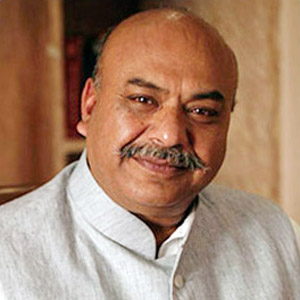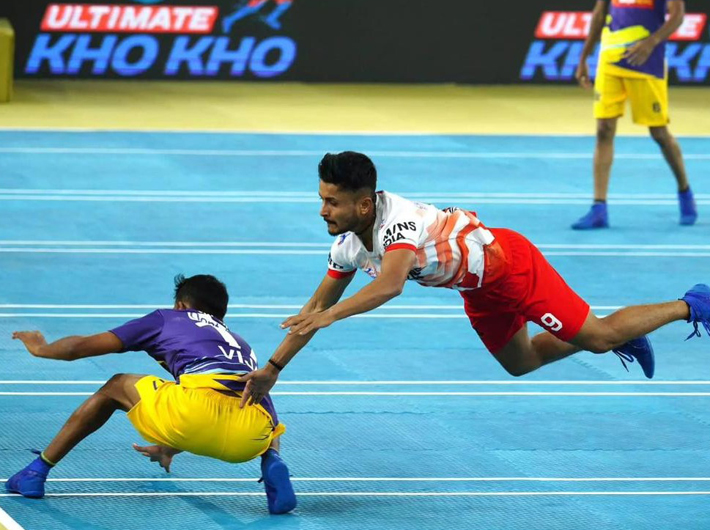Kho-Kho Federation of India president Sudhanshu Mittal on the importance of upcoming 2nd edition of 'Ultimate Kho-Kho'
If you've ever experienced the thrill of Kho-Kho, you know its game-changing joy. For the uninitiated, this sport is a gem waiting to be discovered. Kho-Kho, a traditional Indian field game, has steadily garnered attention and acclaim. Thanks to the relentless efforts of the Kho-Kho Federation of India, players now find themselves elevated with recognition and employment opportunities. Once a local pastime losing its foothold, this game is now experiencing a revival, thanks to the Federation's dedication not just to promote the sport, but also to enhance the lives of its players.
The second edition of 'Ultimate Kho-Kho' is set to kick off on December 24. The league unfolds at the Jawaharlal Nehru Indoor Stadium in Cuttack, Odisha, culminating in the final match on January 13, 2024. To offer a sneak peek into what's in store for this edition, Sweta Ranjan caught up with Sudhanshu Mittal, the president of the Federation.
 Following last year's success, what's in store for this year's event?
Following last year's success, what's in store for this year's event?
After the triumph of the previous season, there's an electrifying buzz surrounding the second season among both Kho-Kho enthusiasts and players. Choosing Cuttack for this season was a nod to Odisha's exceptional affection for Kho-Kho. A year ago, Kho-Kho wasn't prominently featured, but this time, Odisha emerged as runner-up in both men's and women's categories in the National Games. Hence, Season 2 is hosted in Cuttack. There's immense enthusiasm among players. We've learned significantly from the last season and tweaked the format slightly. Simplifying the scoring by standardising tag points, regardless of the manner of capture, brings clarity to the game. The new format introduces the concept of 'Wazir.' Drawing from past experiences, this season promises heightened excitement and pace, ensuring an enjoyable experience for both spectators and players.
Kho-Kho is traditionally a grassroots sport that you've elevated onto a global platform. What sets this game apart?
The journey of Kho-Kho from local fields to a global stage spans a long, enriching path. Its speciality lies in the smile it brings to people's faces when mentioned. I've played it myself. From streets to villages, this game resonates with the soul of India. Its accessibility, needing minimal resources to play—two poles, a line, and any open space—contributed to its widespread popularity. We painstakingly worked on its internationalisation, transitioning it from mud to a mat. In aligning it with international standards, we incorporated elements showcasing its agility, speed, and reflexes. Today, Kho-Kho boasts participation from 38 countries, not just expatriate Indians, but locals engaging in Malaysia, Korea and Iran, among others. The Asian Games Championship held in Kokrajhar, Assam, witnessed unmatched success, embraced with immense enthusiasm.
How has 'Ultimate Kho-Kho' impacted the lives of its players?
Reflecting on the transformation in players' lives evokes emotions. These were kids from impoverished backgrounds, struggling for even two square meals a day. Today, as these children earn substantial sums, it sparks a dream in their families and communities—a realisation that their children can achieve success. Consequently, there's growing interest and acceptance of the game among families, aspiring for their children to embrace Kho-Kho as a career.
With initiatives like Khelo India fostering a sports culture nationwide, what steps are being taken to promote Kho-Kho?
The government's support has been instrumental. Recently, Kho-Kho was included in the sports quota for recruitment in the Uttar Pradesh Police. Today, among various job opportunities under the sports quota, Kho-Kho players find their place. A girl who represented India in the Asian Games Championship, where India secured the top spot, received an offer to join the Assam government as a DSP as soon as she attained eligibility. Imagine, a girl from a struggling family, through Kho-Kho and representing India, embarks on a journey to become a DSP—a monumental achievement. This achievement not only illuminates hope within families and society but also underscores the unmatched agility and reflexes inherent in this game on an international stage.

